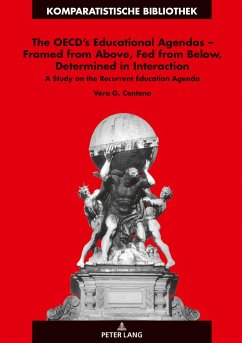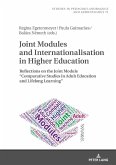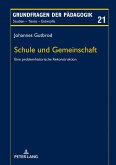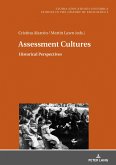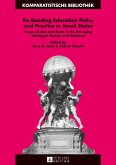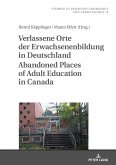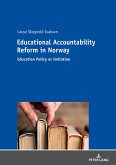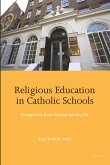This book looks at the backstage of the Organisation for Economic Co-Operation and Development's (OECD) educational agendas. By explaining the rise and fall of its first educational agenda - Recurrent Education - it explores the organisation's institutional structures and functioning, as well as its decision-making processes. The volume brings together theoretical approaches and empirical findings to expound on the organisation's three overlapping constitutive dimensions of actor, arena, and instrument. The study shows the significance of intertwined institutional and conceptual changes for educational agenda-setting and knowledge production within the organization. The author turns the focus from the diffusion/reception of international policies to their production, and analyses a large volume of internal documents across time (1960s-1980s).
Bitte wählen Sie Ihr Anliegen aus.
Rechnungen
Retourenschein anfordern
Bestellstatus
Storno

